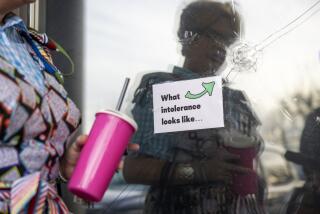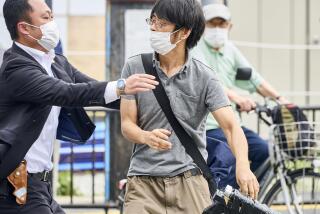Islamic State’s Syrian capital becomes the prize in an international fight for legitimacy
When it was first overrun by the rebels in 2013, the eastern Syrian city of Raqqa became the symbol of the revolution against the rule of Syrian President Bashar Assad. Nine months later, it emerged as the de-facto capital of Islamic State, the springboard from which the group would launch its self-proclaimed caliphate.
Now it has become the central prize in a race between the Russian-backed Syrian government and a U.S.-supported Syrian Kurdish-dominated militia known as the Syria Democratic Forces (SDF). Both sides – with the support of their international backers in the U.S. and Russia -- are vying for the legitimacy that comes with destroying Islamic State.
For the SDF, it could make Raqqa another addition to its presumptive Kurdish state on Syrian soil. A Syrian army victory, on the other hand, would force Western powers to rethink the pariah status of Syrian President Bashar Assad’s government.
The two Raqqa offensives, running in parallel and backed by competing international players, represent the often contradictory intersections of loyalties that have arisen during the five-year Syrian crisis, which has ravaged the country, killed hundreds of thousands and displaced millions.
Islamic State first seized control of Raqqa in January 2014, routing other rebel groups with which it had once shared the city. Its power consolidated, the group’s jihadists made the city into a byword for the reign of terror it imposed on those who fall into its hands. Severed heads appear with gruesome regularity on the fences of the city’s once vibrant central squares. Lashings and amputations became the punishment for violations of the jihadists’ strict version of Islamic law. Minorities were reported to have either fled or, if their religion was deemed acceptable by Islamic State, remained after paying exorbitant “protection” taxes.
Syrian army units pressed their offensive Sunday on the Islamic State-held province of Raqqa, officials and a monitoring group said, in a bid to retake the provincial capital of the same name. Syrian pro-government reporters uploaded videos and pictures on social media purporting to show the Desert Eagles, a special forces division of the Syrian army, securing control of areas east of the town of Ithriyah, a government-controlled town 80 miles southwest of Raqqa city, after what was said to be “crushing battles” with Islamic State jihadists.
A journalist embedded with the Desert Eagles, Eyad al-Hosain, reported on Sunday the troops had advanced 28 miles on the strategic highway connecting Ithriyah to Raqqa since the operation’s beginning. He also posted a picture of a crudely armored pickup truck laden with what was said to be at least 10 explosive canisters. Syrian state news operator SANA said that the operation, which had begun on Friday, was “proceeding successfully and had taken a total of 28 miles of territory from the group.
The SDF, an umbrella group comprising several thousand Syrian Kurdish and Arab fighters, also has Raqqa in its sights. Two weeks ago, the militia stormed through a number of Islamic State-held villages and towns to get within 30 miles of the embattled city. It has the warplanes of the U.S.-led coalition providing air support, and special forces operators are embedded with the group’s Kurdish fighters on the ground.
With the threat of SDF coming in from the north and the army approaching from the southwest, families of Islamic State fighters had already begun moving to safer areas of the city, according to the Syrian Observatory for Human Rights, a pro-opposition monitoring group with a network of activists on the ground.
On the Syrian government’s side, Russian airstrikes proved instrumental in the army’s latest advance into Raqqa, while Russian advisors and commandos have provided logistical assistance to ground troops. Russia has been a vital ally in Assad’s fight to push back rebel forces. Russian warplanes have deployed to the country since September, while Russian advisors and special forces units have also provided training and support to Syrian pro-government forces.
According to the Observatory, the government is attempting to reach the Euphrates river so as to cut off the highway connecting Raqqa to Aleppo province, as well as seize control of the nearby airbase of Tabqa.
Located 27 miles west of Raqqa, Tabqa was taken by Islamic State in August 2014 after an 18-day offensive that culminated in the Syrian army’s retreat, even as hundreds of soldiers were captured and eventually massacred by the extremist group. It is also home to the Tabqa dam, Syria’s largest, which provides both water and electricity for many areas in northern parts of the country.
The campaign comes on the heels of other campaigns on Islamic State territories: To the east, across the border in neighboring Iraq, government forces backed by the U.S.-led coalition are poised to rout the group from Fallouja. To the west, the SDF are closing in on Manbij, an Islamic State-held “pocket” that serves as a supply route between Turkey and Syria.
Yet both attacking forces have little in common beyond a shared enmity against the Islamic State. Many on the government side suspect the Kurds intend to annex Raqqa.
The international overseers of the campaigns are also at odds with each other: The U.S has been reluctant to offer even indirect support to any attack that works in the interest of the Syrian government, while the Russians insist that the Syrian army is the only force capable of removing Islamic State from Syria. A Syrian army victory in Raqqa is also seen as an important step toward reasserting Assad’s rule over the country.
“The operation is a large stake in the heart of those who are after secessionist projects,” said Eyad al-Hosein, a pro-government journalist, in a Facebook post marking the start of the army’s campaign, making a veiled reference to Kurdish calls for a self-governing canton.
“It is the final answer to the argument on [dividing Syria].”
ALSO
Philippine president-elect urges public to kill drug dealers
To Muslims the world over, Muhammad Ali was ‘#TheGreatest’
Mexican elections: Ruling party faces challenges from left and right in key states
Bulos is a special correspondent.
More to Read
Start your day right
Sign up for Essential California for news, features and recommendations from the L.A. Times and beyond in your inbox six days a week.
You may occasionally receive promotional content from the Los Angeles Times.







